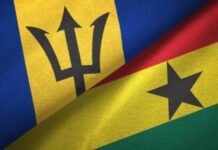
As a result of Britain deciding to exit the European Union, two South African gold mining companies are heading for huge free cash bonanzas, ratings agency Moody’s said on Monday.
AngloGold Ashanti is set to generate an additional $120-million in free cash flow in the second half of 2016 and Gold Fields an additional $50-million free cash, Moody’s assistant VP-analyst Douglas Rowlings said in a release to Creamer Media’s Mining Weekly Online.
Brexit sent gold rallying 8.5% to a two-year high of $1 358/oz within a few hours of voting stations closing – gold’s biggest rally since the global financial crisis of 2008. At the same time, the US dollar strengthened, driving a 9% fall in the rand and a 4% depreciation of the Australian dollar.
AngloGold and Gold Fields are both headed by CFOs turned CEOs – Srinivasan Venkatakrishnan (Venkat) and Nick Holland – with AngloGold deriving 26% of its gold revenues from South Africa and 14% from Australia, and Gold Fields deriving 43% from Australia and 10% from South Africa.
A gold price of $1 300/oz and exchange rates of R15 and A$1.35 to the US dollar were used for the calculation, which can be even greater at $185-million and $135-million free cash on a lower $1 200/oz gold price and slightly weaker exchange rates of R16 and A$1.40.
Depreciated local currencies provide the benefit of lower operating costs in US dollars and soaring revenues from dollar gold price increases plus rising dollar values. The World Gold Council on Friday forecast “strong and sustained” inflows into the gold market, driven by a “staggering level of protracted uncertainty that investors now face”.
As the British pound collapsed to a 31-year low, London gold trading concern Sharps Pixley experienced its busiest day ever, with online demand for larger bullion bars forcing the company to call for emergency reserves of kilobars from Germany. Coin sales went through the roof as CEO Ross Norman spoke on gold’s wealth preservation properties and the ability of the precious metal to protect investors against currency weakness and political uncertainty.
As Mining Weekly Online reported shortly before the surprising Brexit announcement, the Bank of England holds the lion’s share of South Africa’s offshore bullion stocks, which at last count totalled four-million ounces. With the gold price surge, South Africa’s official gold stocks are worth well over the nigh-$5-billion revealed by Finance Minister Pravin Gordhan in his written reply to Opposition Shadow Finance Minister David Maynier.
At the end of February, the value of South Africa’s official four-million-ounce reserve – held mainly by the Bank of England – was $4.96-billion or R75-billion at March 9’s exchange rate of R15.17 to the dollar. Fitch Group research firm BMI said it did not see gold’s surge as a flash in the pan and anticipated gold gaining momentum in the coming weeks.
Commentators said Brexit riskiness was poised to haunt every step that Britain takes in disconnecting itself from the European Union, which would again play right into the hands of gold. Moody’s said the contagion-related uncertainty that Brexit had brought to the global economy would likely support ongoing demand for safe-haven asset classes, keeping gold prices high and the US dollar strong relative to South African and Australian currencies.
While the next few months would likely be bumpy for the gold and currency markets, it said that AngloGold’s and Gold Fields’ credit profiles remained well positioned to accommodate any volatility over this period, given their deep liquidity sources and strong credit metrics.
Source: Mining Weekly
























